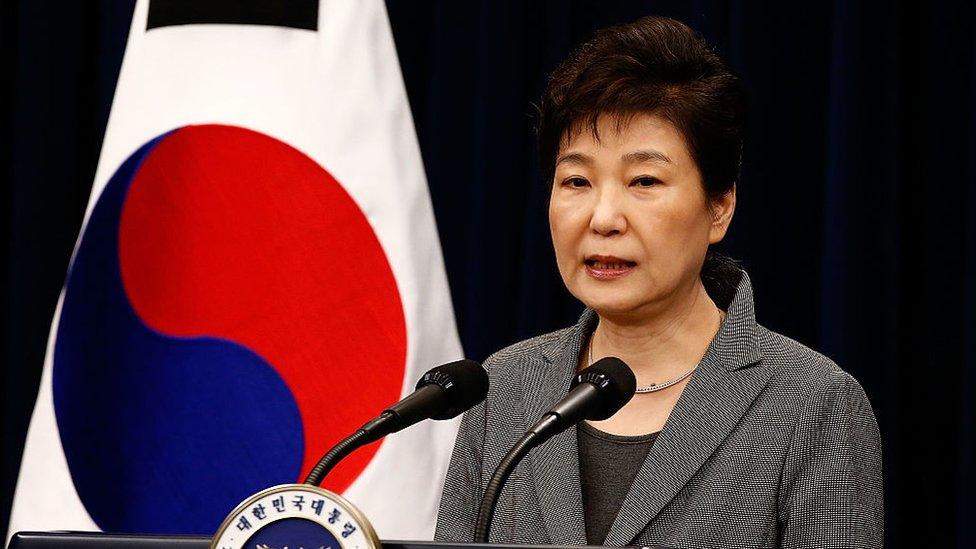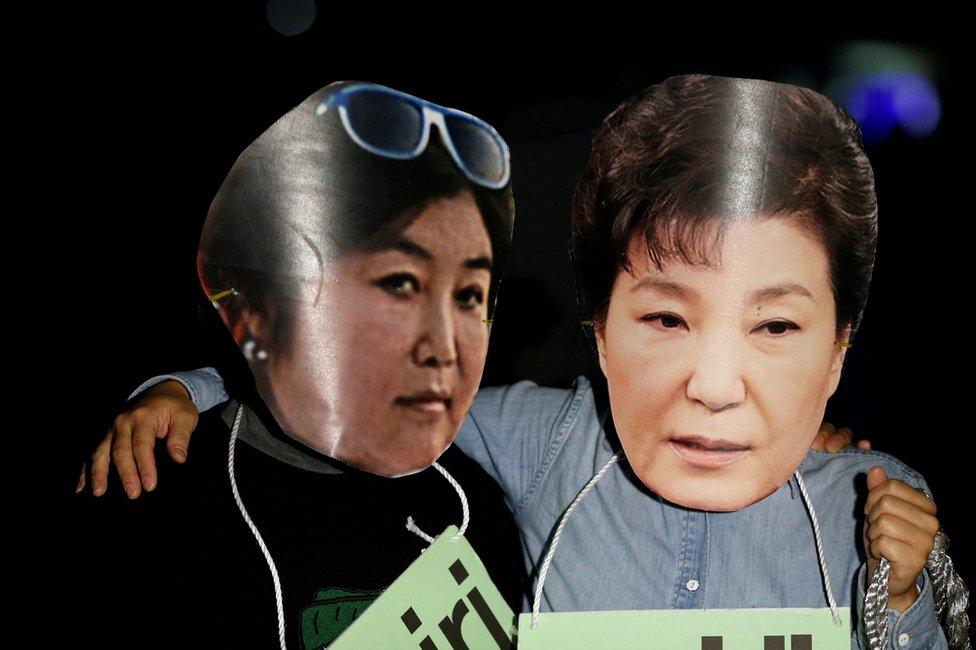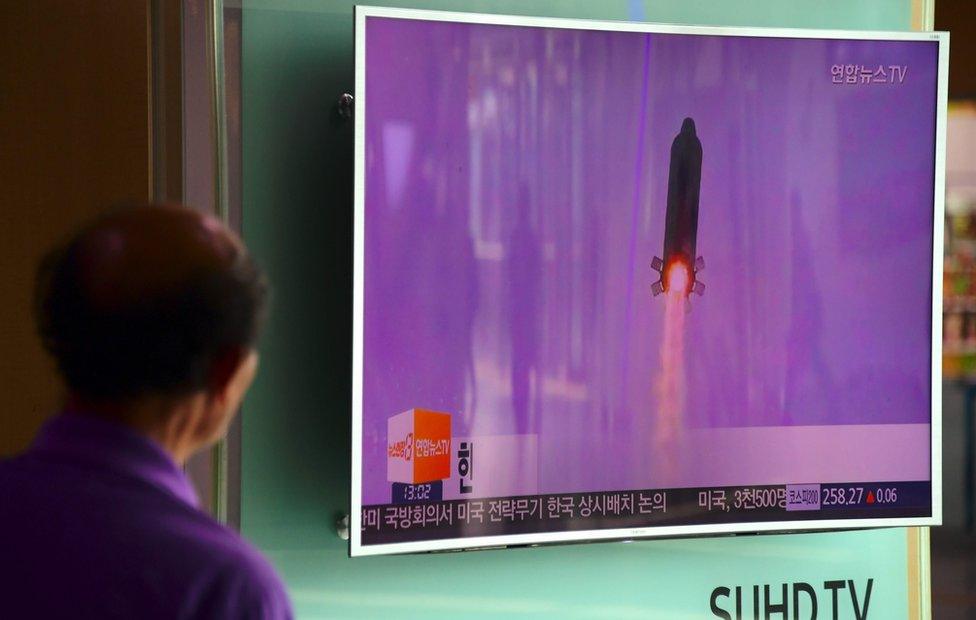Park Geun-hye: South Korea's first female president
- Published

Park is the daughter of former president Park Chung-hee
In just four years South Korea's president Park Geun-went from being a trailblazer to a figure of controversy linked to a deepening corruption scandal.
An angered Korean public called for her resignation and she was officially impeached in March 2017.
Her unpopularity stands in stark contrast to the start of her term in 2012. In a tight presidential race, she beat Moon Jae-in to became the country's first female leader.
It was a notable achievement given that South Korea had the highest level of gender inequality in the developed world.
Political blue-blood
Park was no stranger to the presidential house when she took office. She is the daughter of former president Park Chung-hee, a controversial strongman.

The two women have known each other since the 1970s
When her mother was murdered by a North Korean gunman in 1974, Park served as first lady at the age of 22. Five years later, her father was assassinated.
Some said the association with her father - and her experience as first lady - helped cement her win by overcoming prejudices among male voters.
But Park's personal history fell under public scrutiny again with the scandal surrounding Choi Soon-sil, her longtime confidante.
The two women's relationship stretches back to the 1970s when Choi's father, the shadowy quasi-religious figure Choi Tae-min, befriended the Park family.
But in 2016, allegations began emerging that Choi Soon-sil was being given inappropriate access to government decision-making, including editing some of Park's speeches.
Choi was later accused of using her friendship to pressure some of South Korea's biggest companies into paying money into non-profit foundations she ran, in exchange for securing favourable treatment from the government.
Choi was eventually found guilty of corruption and influence-peddling, as was the de facto head of Samsung, one of the companies allegedly involved.
Park, who is accused of colluding with her friend, was impeached by parliament in December 2016. She was officially ousted in March 2017 when the decision was upheld in the supreme court, and was arrested on corruption charges.
Everyone involved has apologised but consistently denied wrongdoing.
Mixed legacy
Park is not married, something that has raised questions in South Korea's conservative society, and is seen as a private individual.

The North has conducted several missile launches during Ms Park's term so far
She holds an engineering degree from Sogang University in Seoul and was first elected to South Korea's National Assembly in 1998.
She sought the presidency in 2007, but her Saenuri, or New Frontier Party, instead nominated Lee Myung-bak, who went on to win.
When she took office Park vowed to improve the economy by boosting creativity and entrepreneurship, but she struggled to push through reforms amid economic scandals., external
She also promised to work on "national reconciliation" with North Korea, but vowed she would not tolerate any action that threatened national security, and said the South must present a "strong deterrent" to the North.
Relations with the North remained cold during her term, and Pyongyang pressed ahead with its nuclear programme, conducting several missile launches and nuclear weapons tests. Each incident was accompanied by a flare-up in tensions.
Park's government was also blamed for systemic lapses that led to the Sewol ferry tragedy in 2014, which she sought to fix.
All of these factors added to the deep public animosity she faced during the corruption scandal, which in the end she was unable to survive.